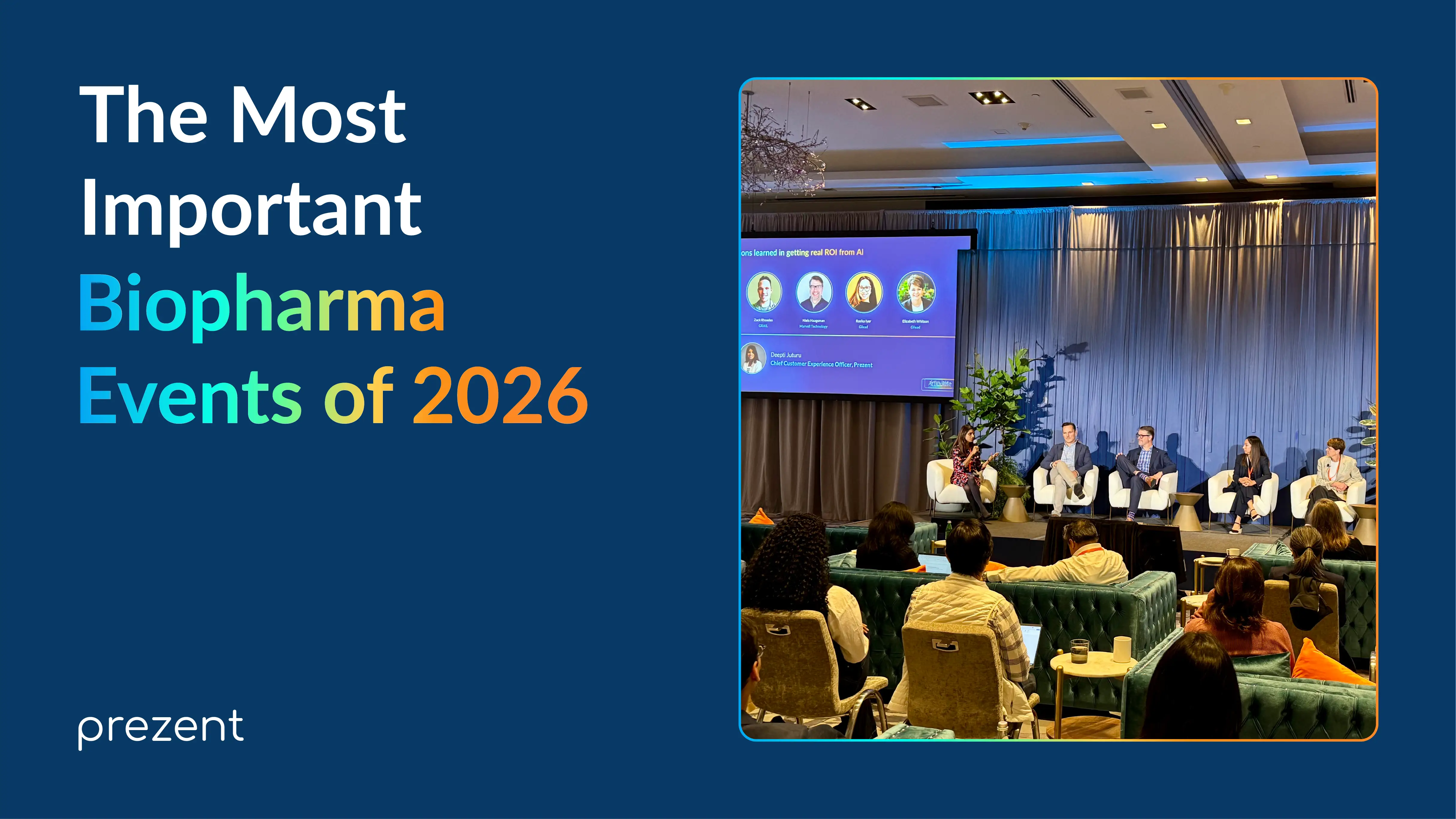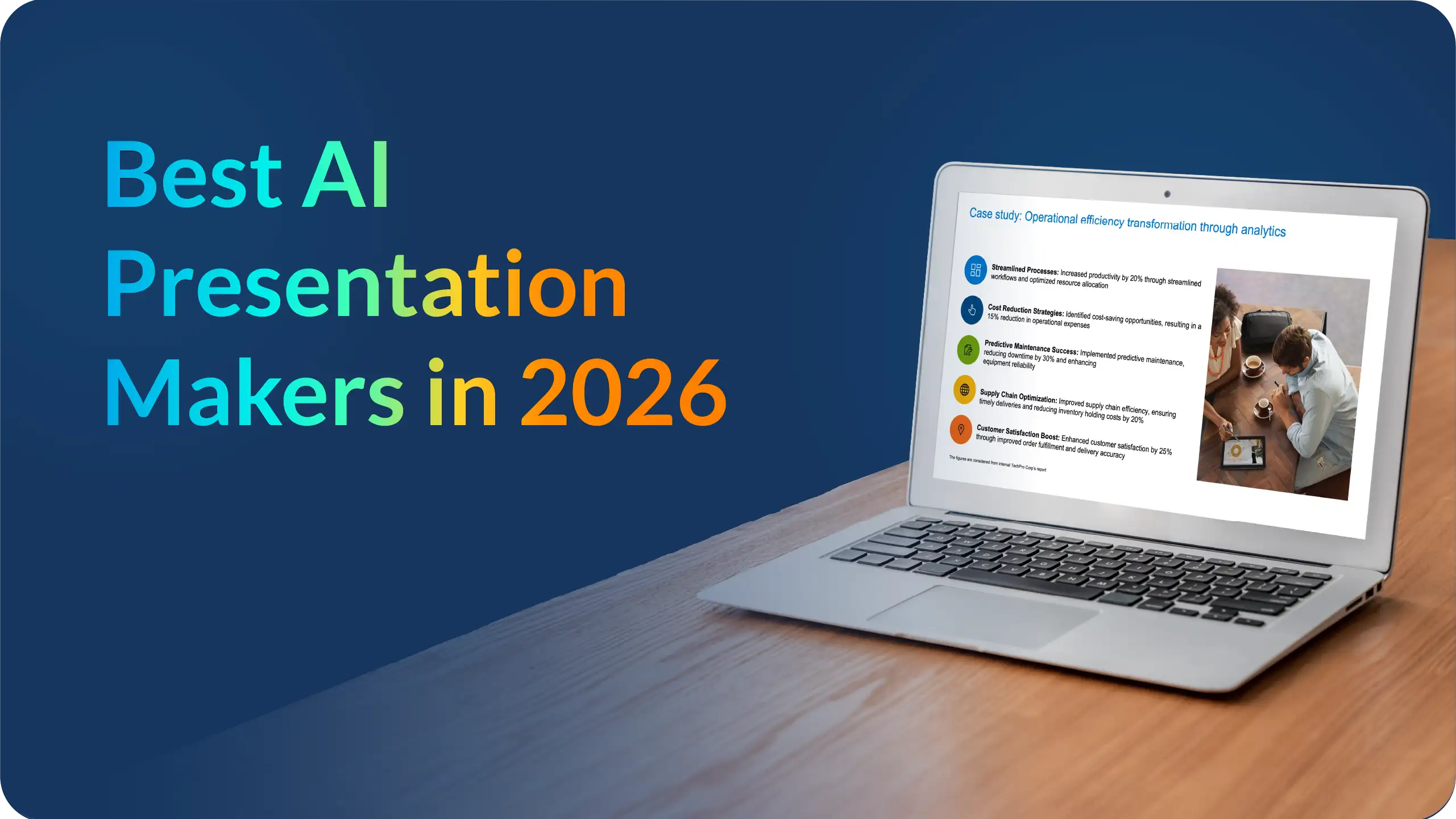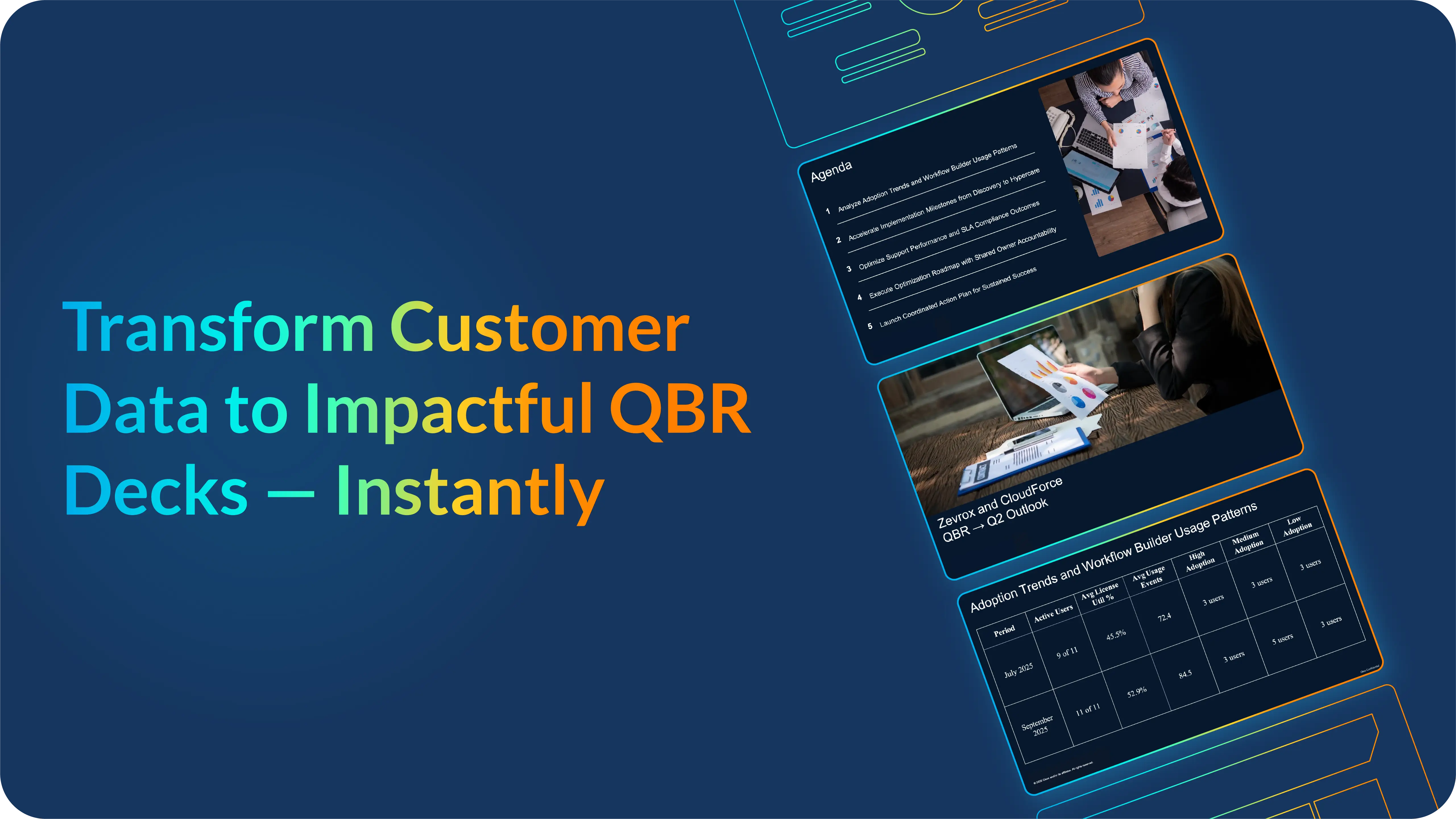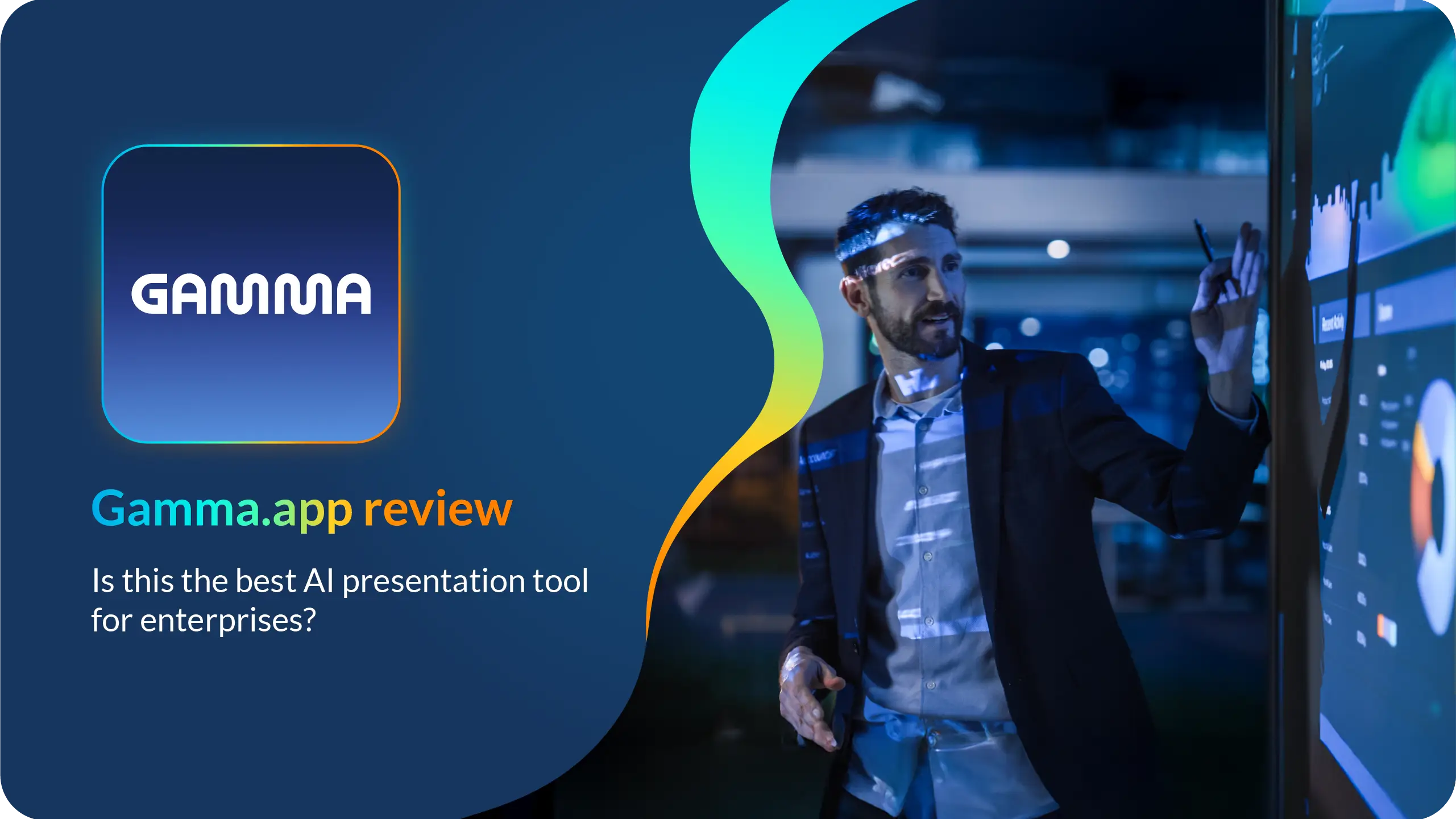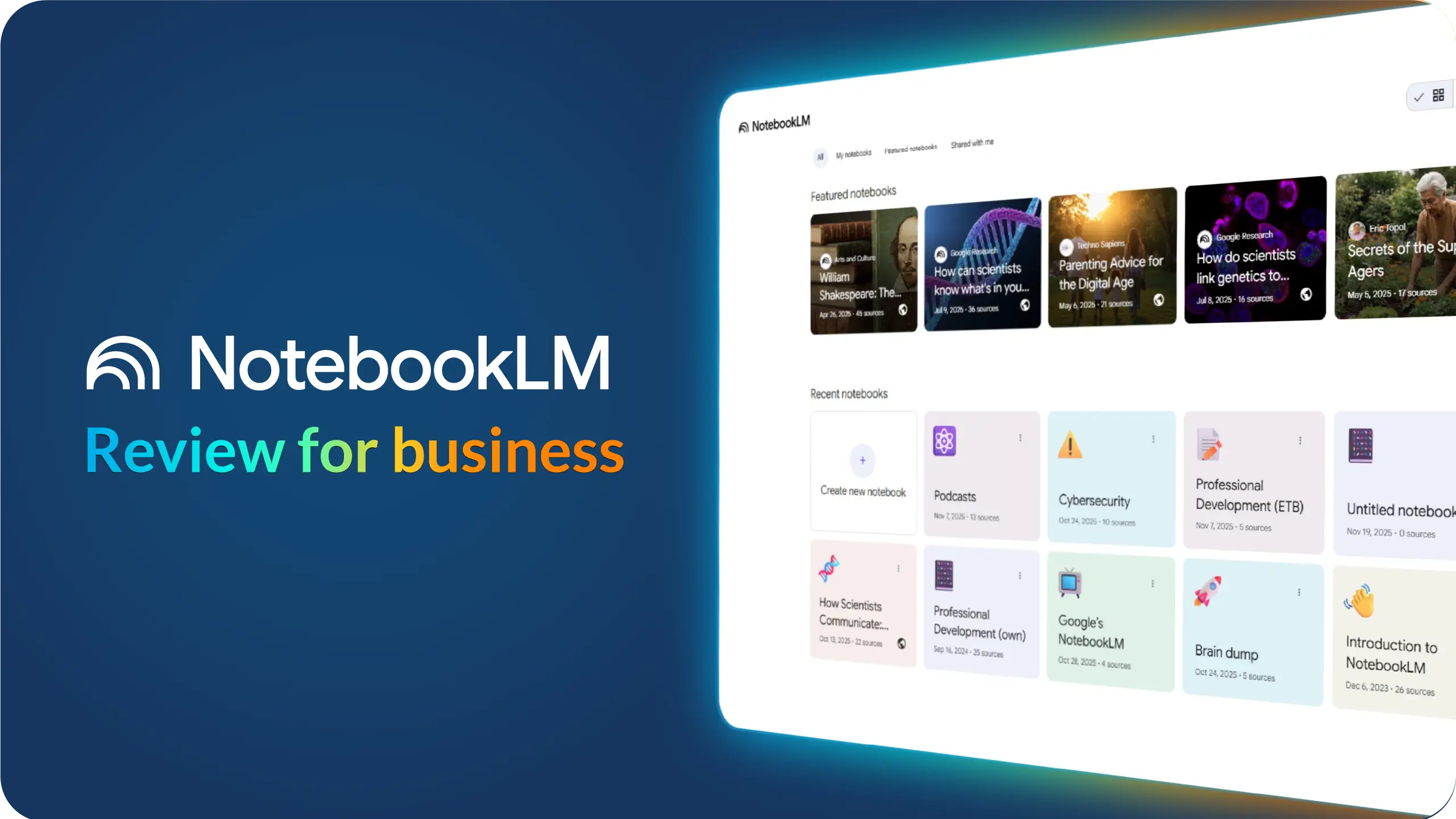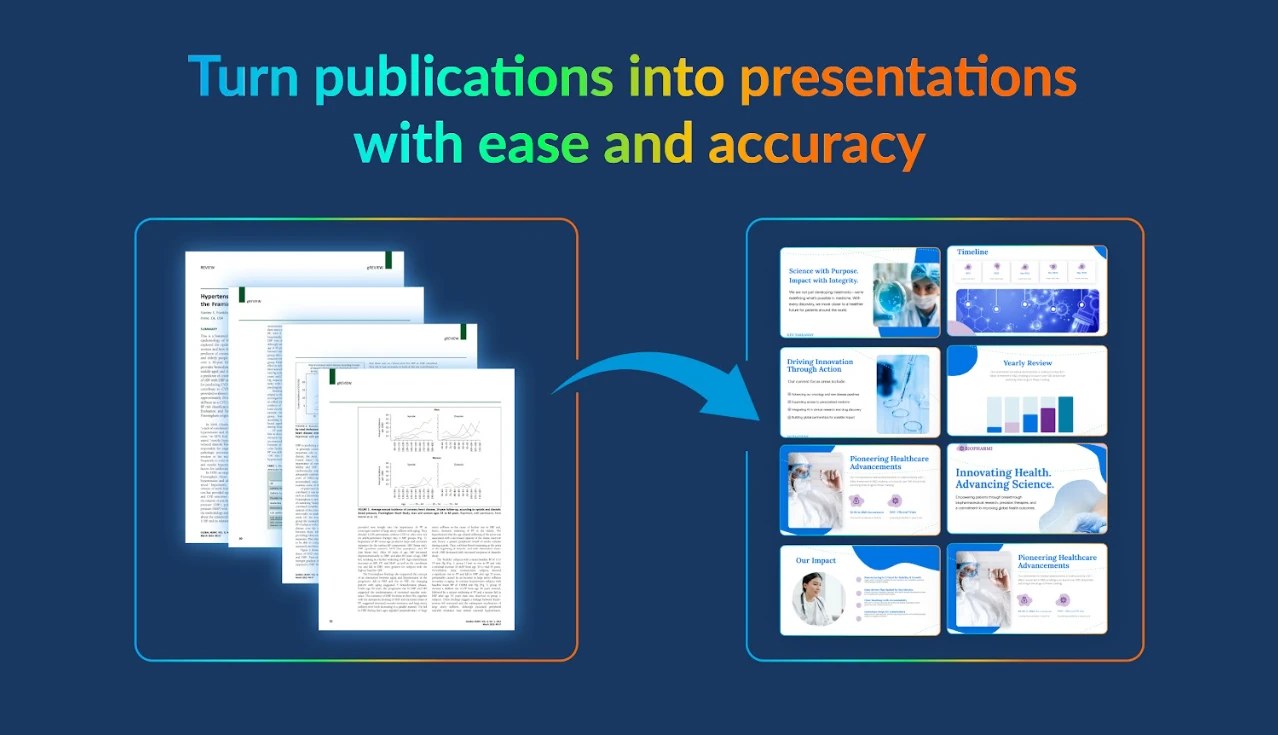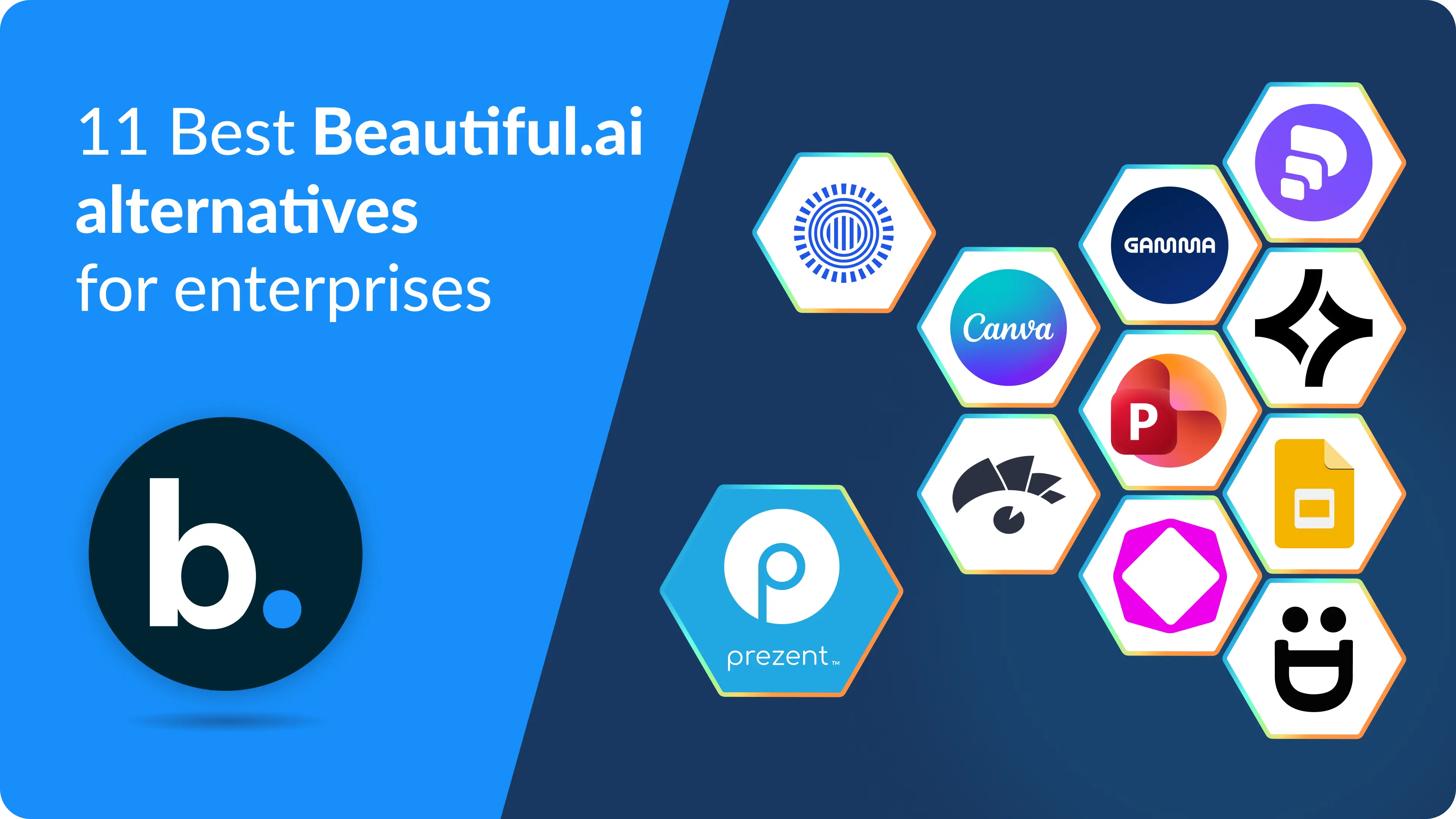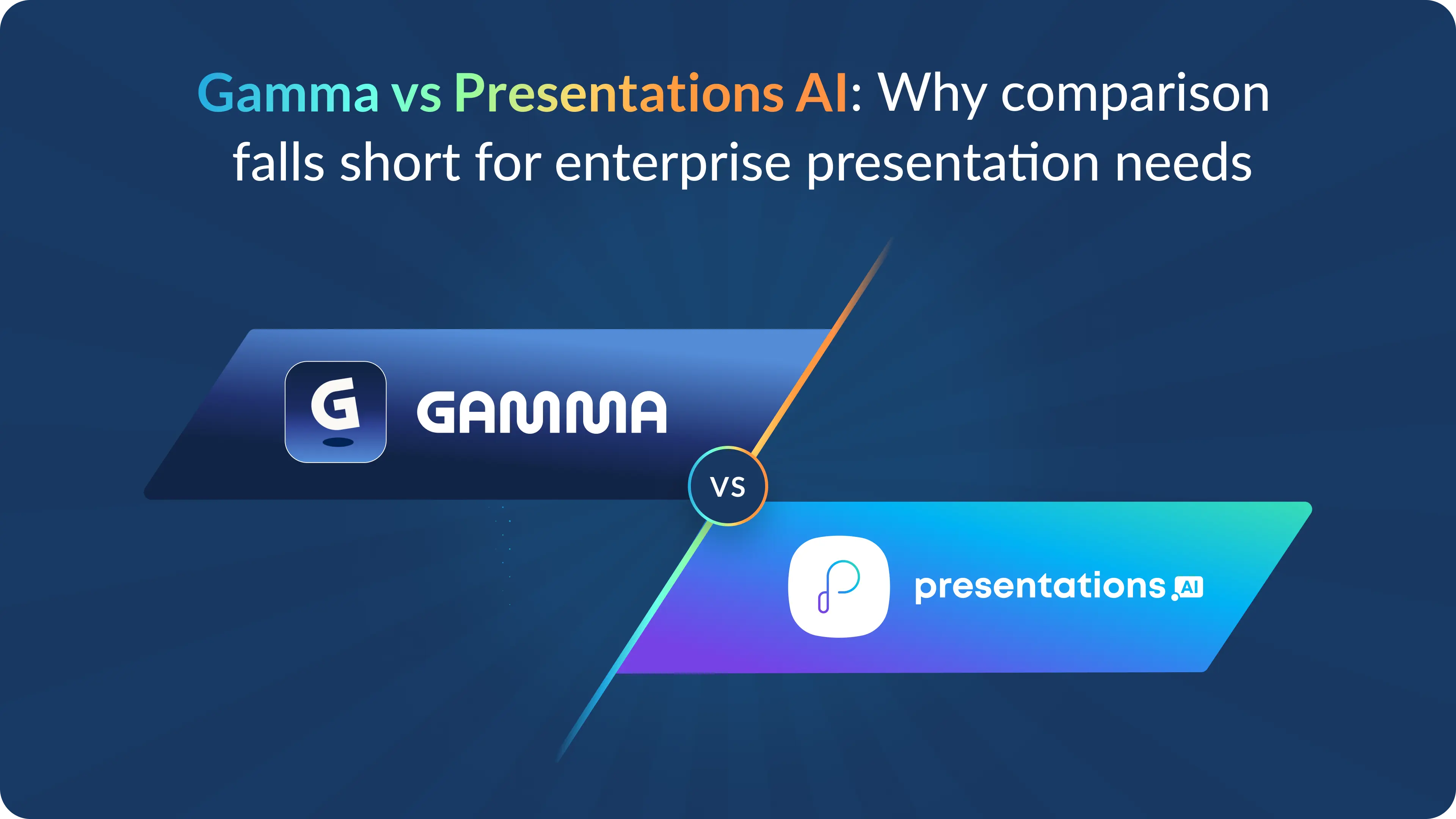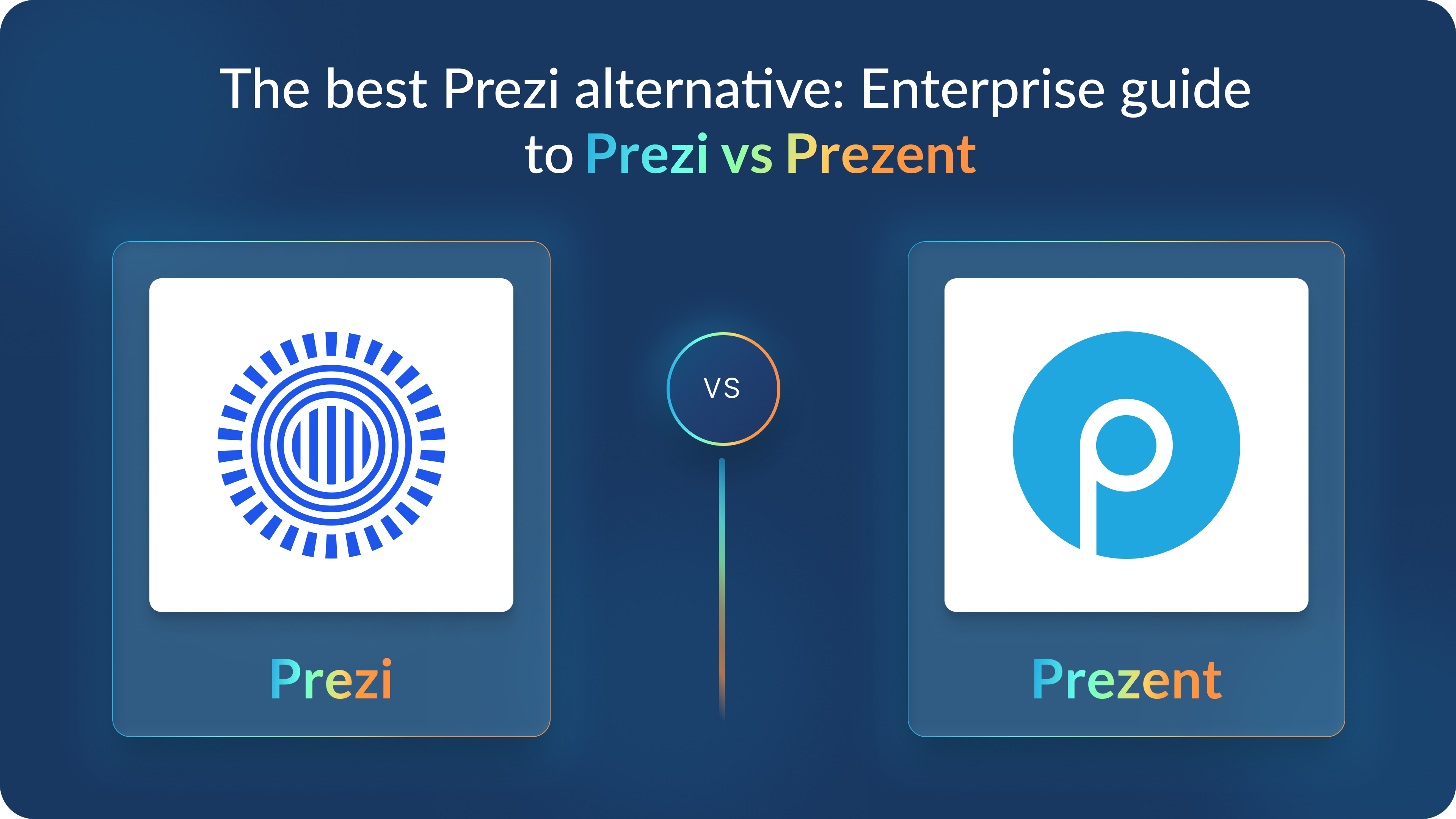The future of AI in business: What every leader needs to know
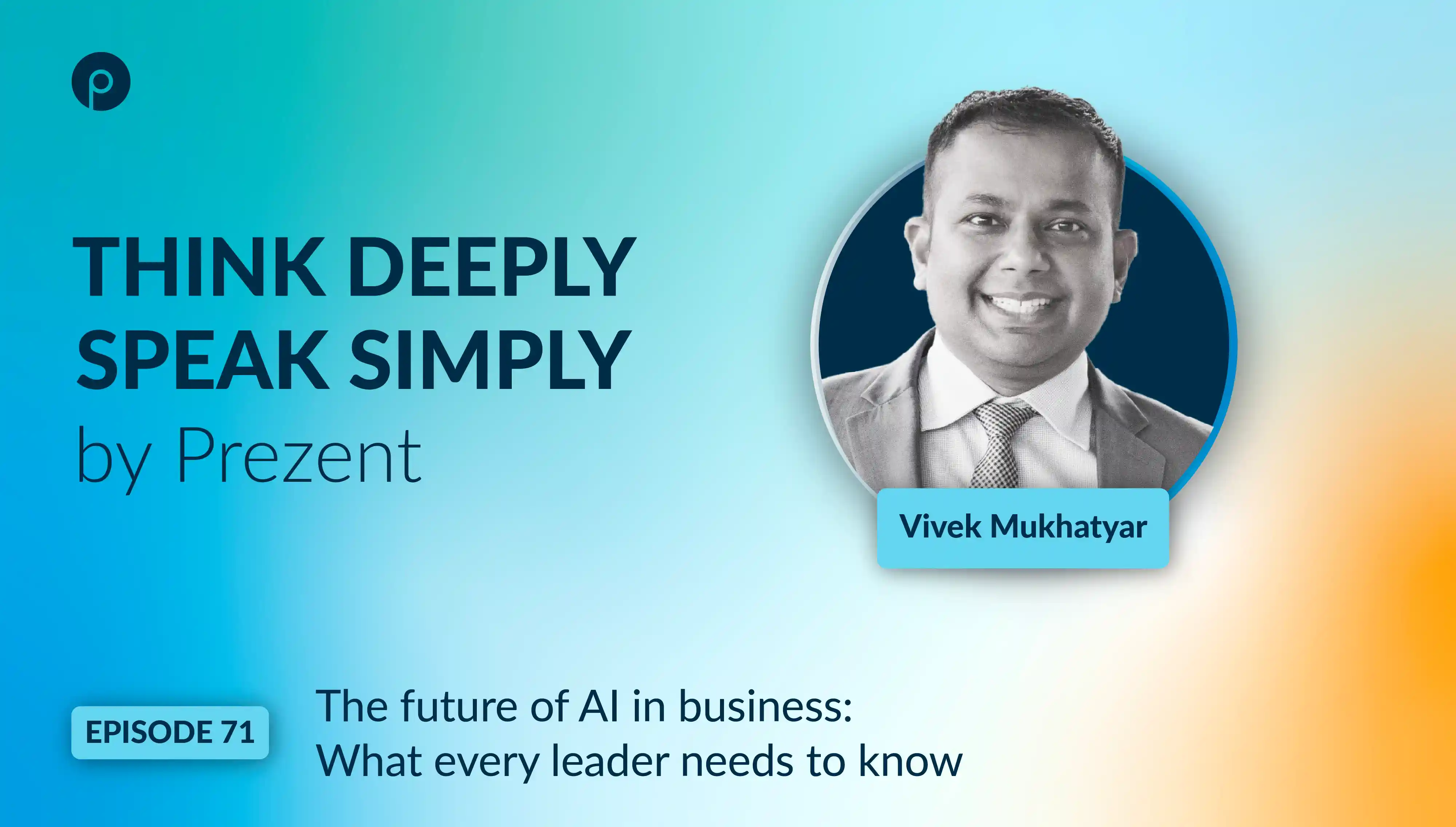
AI is changing everything—from how we work to how we communicate. But is it helping us connect better as humans—or making things more robotic?
In this episode of Think Deeply, Speak Simply, Prezent CEO Rajat Mishra chats with Vivek Mukhatyar, Generative AI Medical Engagement Lead at a global pharmaceutical company, to explore the human side of AI-powered communication.
Vivek paints a vivid picture of this shift:
“We went from typewriters to computers… and now, things that took weeks can be done in minutes with AI.”
From how patients actually preferred AI bedside manner, to how companies like Moderna and Infosys are upskilling employees at scale, this episode is packed with real-world examples and powerful takeaways. It’s a roadmap for anyone looking to use AI to improve their communication—and stay ahead.
Key takeaways
- AI enhances communication—it doesn’t replace human connection.
- Upskilling employees is key to realizing AI’s full potential.
- Responsible adoption requires clear business alignment and governance.
- AI will unlock new formats of communication—get ready.
Here’s a closer look at what this episode covered:
Using AI to communicate more clearly, personally, and inclusively
Vivek shares how AI is already helping teams distill complex medical data into simplified, patient-friendly formats. It’s also enabling multi-language communication, improving accessibility for people with disabilities, and delivering personalized content based on audience preferences. The result? More reach, more clarity, and more impact. In a world where attention is scarce, that matters.
He points out that AI doesn’t strip communication of emotion—it can actually add to it. “There was a study comparing doctor-patient interactions with AI-led ones. The surprising outcome? Patients felt the AI was more patient and empathetic,” Vivek recalls.
But empathy still needs oversight. “AI is only as good as the data it’s trained on,” he warns. This is why ethical use, context, and human verification remain critical. AI can help us do better—but it still needs us in the loop.
Want ROI from AI? Start with upskilling
You can’t expect results from AI if your team doesn’t know how to use it. Vivek emphasized that the biggest blocker to AI adoption isn’t the technology—it’s the lack of understanding around how to use it effectively.
“There’s a V12 engine here, but many don’t know how to drive it.”
He shares powerful examples from companies that got it right. Infosys upskilled 80% of its 300,000 employees by creating tiered AI learning paths—think green belts, black belts, and more. Moderna rolled out ChatGPT across its organization and actively encouraged experimentation, leading to the creation of 800+ internal GBDs in just six months.
The lesson? Tools don’t drive transformation—people do. Organizations that want real ROI must invest in training, experimentation, and AI fluency at every level.
Future communication will be powered by AI—and creativity
AI isn’t just about speeding up work. It’s unlocking new ways to express ideas. Vivek points to how communication will evolve in the next 2–3 years: from AI-generated video and voice to immersive storytelling through AR, VR, and multimodal platforms.
“We are just starting to experiment with voice models, video models, and it will unleash creativity that is unlikely what we've seen… We’re only going to be limited by our creative imagination.”
He mentions emerging tools like Sora and Luma that are already showing us what’s possible. In the near future, AI will support richer, more personalized interactions across formats we’re only beginning to imagine. Think virtual meeting rooms where your AI agent summarizes the conversation, or marketing content auto-generated in multiple styles and voices.
However, bias in training data, misuse of generative models, and lack of guardrails are real concerns. That’s why companies need AI governance frameworks, education, and a human safety net to keep things balanced.
4 Simple principles to lead the AI shift
To close the conversation, Vivek offers four clear mantras for leaders navigating the AI landscape. These aren’t just checklists—they’re mindset shifts.
- Bring AI to the table: AI should be part of every conversation—from planning to execution. Bring up AI in every meeting to explore how it can support daily tasks. The goal is to normalize its use and spark ideas on where it can save time or add value.
- Treat AI like a teammate: “Give it a role, give it context,” Vivek said. AI works best when it has direction. Like any team member, it needs inputs to deliver aligned and useful outputs. Whether summarizing content, generating insights, or crafting communication, it performs better when you guide it.
- Be the human in the loop: AI is still a probabilistic system. It can do a lot, but it can also get things wrong. Especially in industries like healthcare, it’s critical to have a human review AI-generated outputs. Leaders should make human oversight a non-negotiable step in the process.
- This is the worst AI will ever be: To stress the speed of change, Vivek used the analogy of horse carriages giving way to automobiles. “This shift has only happened in the last two years,” he said. Just like we had to learn to drive cars, we now have to learn how to work with AI. The capabilities are only going to improve from here—and leaders must build flexible systems that can keep pace.
These four principles are a call to action: start experimenting, upskill your teams, and keep humans at the center. AI can be a powerful enabler, but only when guided with intention.
Final thoughts: AI isn’t here to take over communication
AI isn’t just transforming how we work—it’s redefining how we connect. As Vivek shared, the shift we’re witnessing today is just as transformative as the move from horse carriages to automobiles.
“In the early 1900s, people rode horses to get around. Ten years later, it was all cars. Horse riding didn’t disappear—it just became a hobby. AI is creating that kind of shift.”
This change is already underway—and it’s happening fast. The leaders and teams who lean into AI with curiosity, structure, and a human-first mindset won’t just keep up—they’ll move ahead.
From improving accessibility and personalization to redefining storytelling and upskilling at scale, this episode offers a roadmap to making AI work for people—not the other way around.
Want more insights like this? Our podcasts are easily accessible on our YouTube channel. You can also listen on the go via Spotify and Apple Podcasts.
And don’t forget to tune in to the next episode of Think Deeply, Speak Simply—where we explore more strategies for mastering communication.
